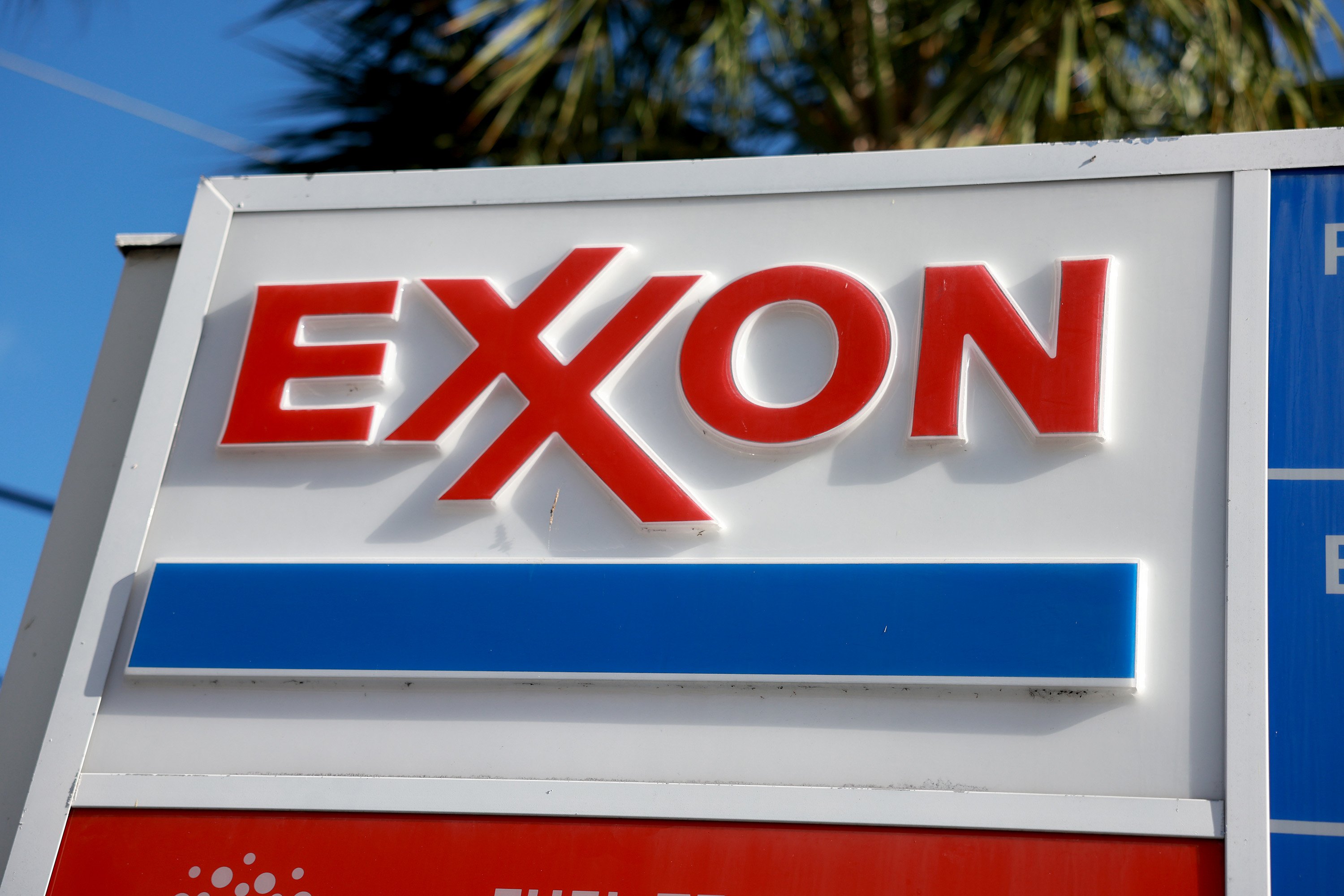An overarching fear for energy investors today is the possibility that low oil prices will stick around for a while, and it could have a pretty devastating impact on the finances of energy investments. This past quarter, we even started to see integrated majors such as Royal Dutch Shell (NYSE: RDS-A) (NYSE: RDS-B) start to shows signs of stress from the recent downturn.
Looking at ExxonMobil's (XOM +1.99%) recent earnings results, though, there are signs that the company is still in decent position to handle the downturn rather well. Let's look at how ExxonMobil performed this past quarter and show why it's still relatively well positioned to come out of this down market in decent shape.
By the numbers
In the third quarter, ExxonMobil's fully diluted earnings per share came in at $1.01, a 47% decline compared with the same time last year. As bad as that sounds, that figure beat analysts' expectations of $0.92 per share for the quarter. As we've seen with almost every other Big Oil player in the third quarter, its earnings from refining helped to mask the even larger declines from upstream production. Upstream earnings declined by more than 75% while downstream/refining earnings nearly doubled compared with this time last year:

Source: ExxonMobil earnings release; author's chart.
Comparing the results of the integrated majors over this period, it looks as though the earnings decline at ExxonMobil lands right in the middle, while its refining earnings improvements were some of the best in the business.
| Company | % Change in Upstream Earnings | % Change in Refining Earnings |
|---|---|---|
| ExxonMobil | (78.8%) | 96.5% |
| BP (BP +1.93%) | (77.5%) | 108% |
| Chevron (CVX +0.87%) | (98.7%) | 59.4% |
| Royal Dutch Shell | (109%) | 56.7% |
| Total (TOT +0.00%) | (59.5%) | 82.3% |
Source: company earnings release.
The highlight
If there's anything that can be plucked from recent earnings releases as a positive, it's that ExxonMobil is realizing some major cost savings. Compared with this time last year, ExxonMobil has been able to reduce its capital and operational cost structure by $8 billion, thanks to big declines in supply costs.

Source: ExxonMobil investor presentation.
That certainly helps profitability, both today and throughout the down cycle we're in, but it's even more promising if those kinds of cost savings can be carried over when the market for oil and gas picks back up again.
Why ExxonMobil makes it easier to sleep at night
The value in owning shares of ExxonMobil is rooted in the cash it returns to investors through dividends and share repurchases. So the big fear for investors is that there won't be enough cash from operations to cover its capital expenses and its shareholder distributions. For some of ExxonMobil's peers, this is a pretty big concern, because their current cash flows don't even cover capital expenditures.
For ExxonMobil, though, this is a less of a concern. Over the past nine months, the company has generated more than enough cash to cover its capital expenditures without having to make steep cuts to its budget.
| Company | Operational Cash Flow Coverage of Capital Expenditures (in %) | Change in Capital Expenditures (YTD 2015 vs. YTD 2014) |
|---|---|---|
| ExxonMobil | 129% | (16%) |
| BP | 98% | (19%) |
| Chevron | 68% | (13%) |
| Royal Dutch Shell | 129% | (18%) |
| Total | 79% | 1% |
Source: company earnings reports
So far in 2015, ExxonMobil has issued $3.7 billion in net debt, which is not too far from the $3.3 billion worth of shares it has repurchased in 2015. So it's not too much of a stretch to say that even at today's low oil prices, ExxonMobil appears to be in pretty decent shape, all things considered.
What a Fool believes
ExxonMobil's quarter won't knock your socks off. Then again, does it ever? The integrated oil and gas business model is built on the idea that it will produce earnings through thick and thin and be able to invest in projects that may take decades to develop. However, there is some comfort knowing that the company is still able to generate enough cash to cover its most pressing capital obligations. If the company can continue to pay for its spending with cash generated from operations and not have to scale back spending too much, then ExxonMobil should be in better shape than almost everyone else to get through this downturn in the energy market and be well positioned to reap the benefits when the market turns for the better.








